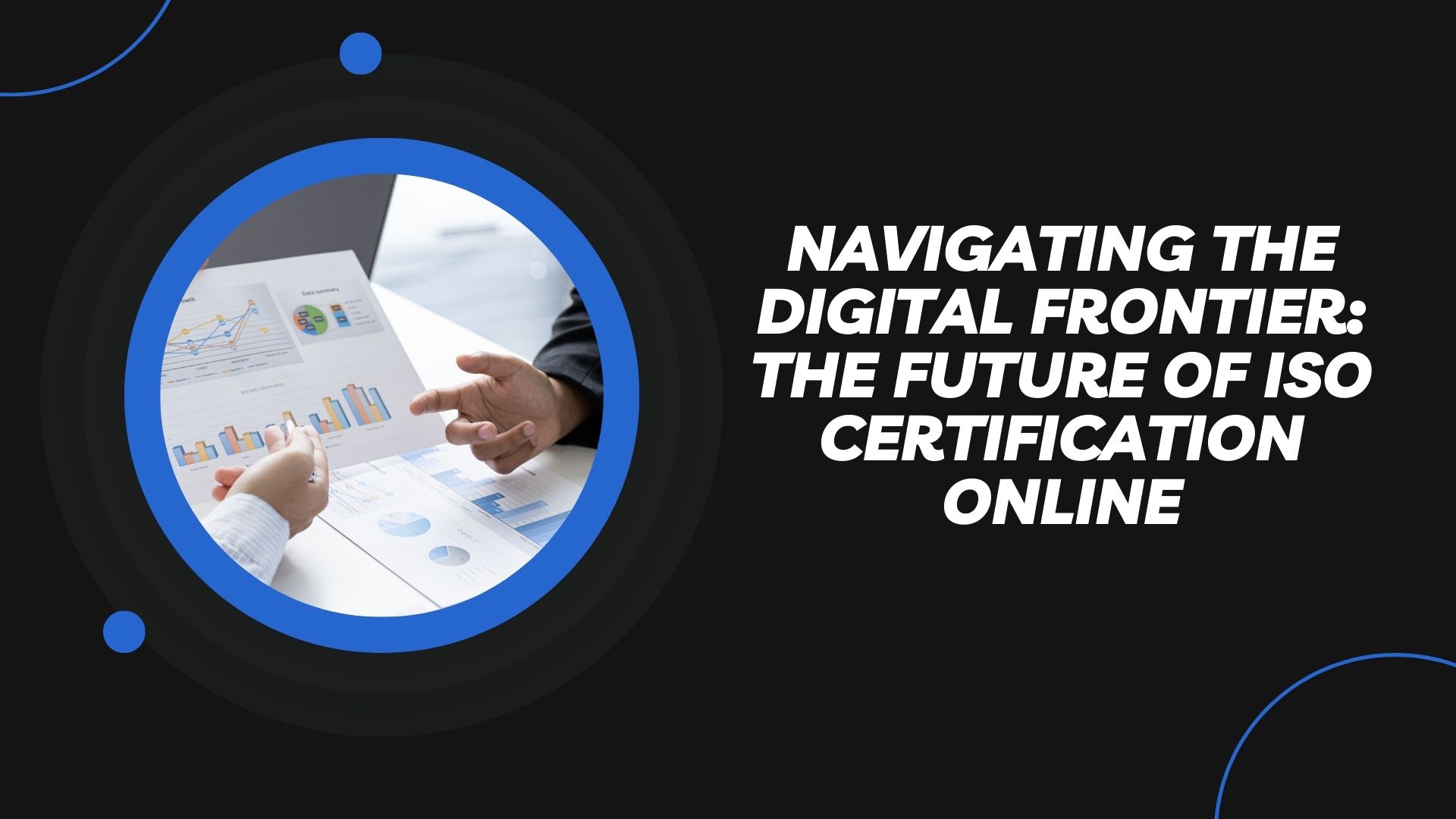Introduction
In a world increasingly reliant on digital technologies and the internet, it comes as no surprise that even age-old processes like ISO certification are undergoing a profound transformation. The shift towards online ISO certification processes has been accelerated by the global digitalization wave, making it imperative to explore the future of ISO certification in this brave new world. This article delves into the evolution, benefits, challenges, and potential advancements in the realm of online ISO certification, shedding light on what the future holds for organizations worldwide.
The Evolution of ISO Certification
To understand the future of ISO certification online, we must first trace its evolution. The International Organization for Standardization (ISO) has long been recognized as the gold standard for quality management systems, environmental practices, and various other standards across industries. Traditionally, organizations seeking ISO certification would undergo a time-consuming, paper-based audit process, requiring significant human resources and physical documentation.
However, as the internet became more ubiquitous, the certification process began to transition online. ISO-certifying bodies started to digitize their operations, streamlining document submissions, communication, and audit processes. This transition proved to be a significant leap forward, as it allowed for faster certification and reduced the carbon footprint associated with paperwork.
The Benefits of Online ISO Certification
Efficiency and Speed:
Online ISO certification drastically reduces the time required to complete the certification process. Digital submissions, automated workflows, and online communication make it possible to expedite audits and assessments.
Cost-Effective:
Eliminating the need for physical paperwork and on-site visits can lead to substantial cost savings for both certifying bodies and organizations seeking certification.
Accessibility:
The online approach makes ISO certification accessible to a broader range of organizations, including those in remote or underdeveloped areas with limited access to traditional certification services.
Environmental Sustainability:
Reduced paper usage and travel result in a smaller environmental footprint, aligning ISO certification with sustainability goals.
Enhanced Transparency:
Online platforms allow for real-time tracking of the certification process, providing greater transparency to organizations and stakeholders.
Challenges and Concerns
While the benefits of online ISO certification are evident, there are several challenges and concerns that need to be addressed for the approach to reach its full potential.
Cybersecurity:
The digitalization of sensitive data and documentation poses cybersecurity risks. Protecting confidential information is paramount, requiring robust security measures.
Quality Assurance:
Ensuring the quality and integrity of online submissions and audits is crucial. Measures to prevent fraud and maintain the credibility of ISO certification are essential.
Technological Barriers:
Not all organizations may have the technological infrastructure or expertise to navigate online certification processes. Bridging the digital divide is a challenge.
Standardization:
The ISO certification process itself must evolve to accommodate online methods while maintaining rigorous standards. Harmonizing digital processes across different certifying bodies is essential.
The Future of ISO Certification Online
Blockchain Integration:
Blockchain technology can enhance the security and transparency of ISO certification. By creating immutable records, it can prevent fraudulent claims and provide a tamper-proof audit trail.
Artificial Intelligence (AI):
AI-powered tools can streamline the certification process further. Automated data analysis can flag potential issues for auditors to investigate, making the process more efficient.
Augmented Reality (AR):
AR could revolutionize the way audits are conducted. Remote auditors could use AR to assess physical facilities, reducing the need for on-site visits.
Remote Auditing:
The COVID-19 pandemic accelerated the adoption of remote auditing. In the future, remote audits may become the norm, reducing costs and environmental impact.
Global Accessibility:
Efforts should be made to ensure that online ISO certification is accessible to organizations worldwide, regardless of their technological capabilities or location.
Data Analytics and Predictive Insights:
Utilizing advanced data analytics, ISO certifying bodies can gain deeper insights into an organization’s operations. By analyzing trends and historical data, they can predict potential areas for improvement and help organizations proactively address compliance issues.
Continuous Monitoring:
Traditional ISO certifications often involve periodic audits. In the future, online certification could enable continuous monitoring of compliance. Real-time data collection and analysis could help organizations maintain ISO standards year-round.
Customization and Scalability:
Online ISO certification platforms can be tailored to specific industries or organizations, allowing for greater customization. They can also scale to accommodate the needs of large multinational corporations and small businesses alike.
Interoperability and Integration:
To enhance efficiency, online ISO certification systems should seamlessly integrate with an organization’s existing software and systems. This integration can streamline data sharing and reduce the burden of manual data entry.
Knowledge Sharing and Collaboration:
Online platforms can facilitate knowledge sharing among certified organizations. Collaboration tools and forums can help organizations learn from each other’s best practices and innovations, fostering a culture of continuous improvement.
Remote Training and Certification:
As part of the shift to online certification, remote training and testing can become the standard. Organizations and individuals can access training modules, take exams, and receive certifications from the comfort of their own locations.
Global Recognition:
Online ISO certification should aim for increased global recognition and standardization. A certificate obtained online should carry the same weight and credibility as one obtained through traditional means, ensuring consistency in certification quality worldwide.
Ecosystem Development:
A thriving ecosystem of online ISO certification services, consulting firms, and technology providers will emerge. This ecosystem will support organizations in navigating the complexities of certification, offering a wide range of services, from initial assessment to continuous improvement.
Regulatory Compliance:
Online ISO certification will need to align with evolving regulatory requirements and industry standards. Certifying bodies must stay updated on changing regulations to ensure their certifications remain relevant and legally compliant.
Environmental Responsibility:
In line with ISO standards focused on sustainability and environmental responsibility, online certification processes should actively promote eco-friendly practices, reducing the environmental impact of certification operations.
AI-Driven Predictive Compliance:
AI algorithms can analyze data to predict potential compliance issues before they occur, allowing organizations to take corrective actions proactively and maintain ISO standards consistently.
See Also: ISO 29990 Certification
Conclusion
The future of ISO certification online holds immense promise. By leveraging digital technologies like blockchain, AI, and AR, the certification process can become more efficient, secure, and accessible than ever before. However, addressing challenges related to cybersecurity, quality assurance, and technological barriers will be essential to realizing this potential. As organizations increasingly embrace the digital frontier, online ISO certification will play a pivotal role in ensuring the quality and sustainability of products and services across industries. It is a journey towards a more connected, efficient, and environmentally responsible world of certification.





